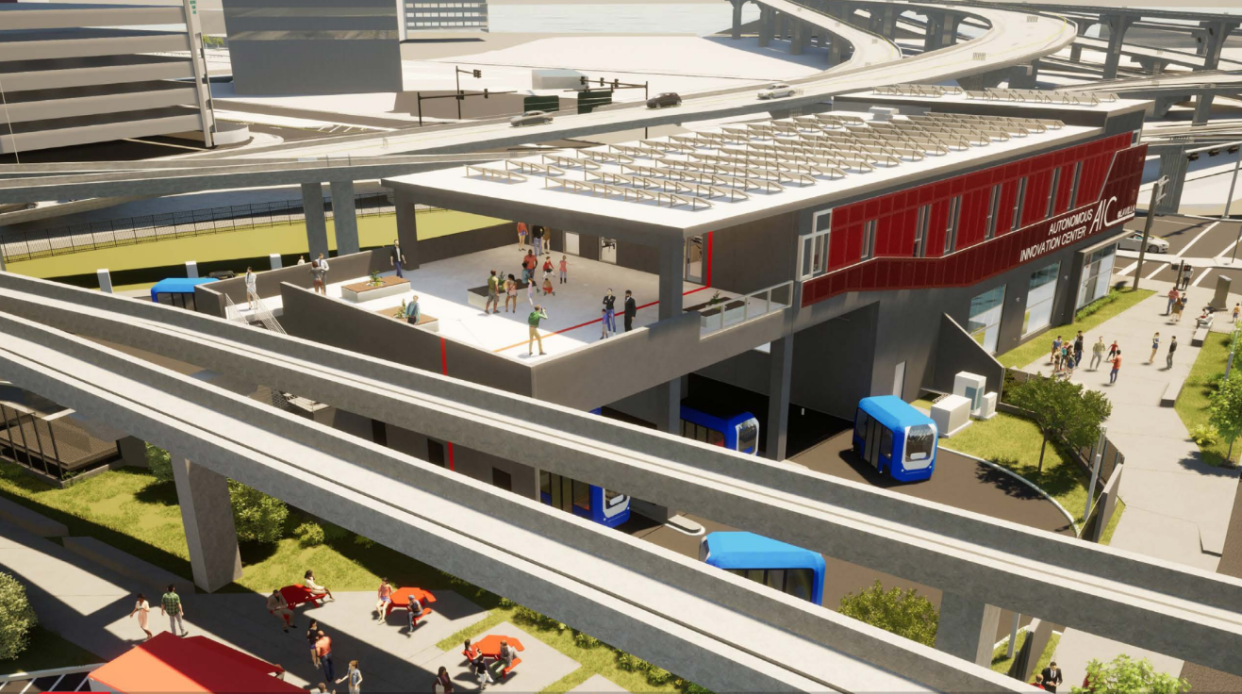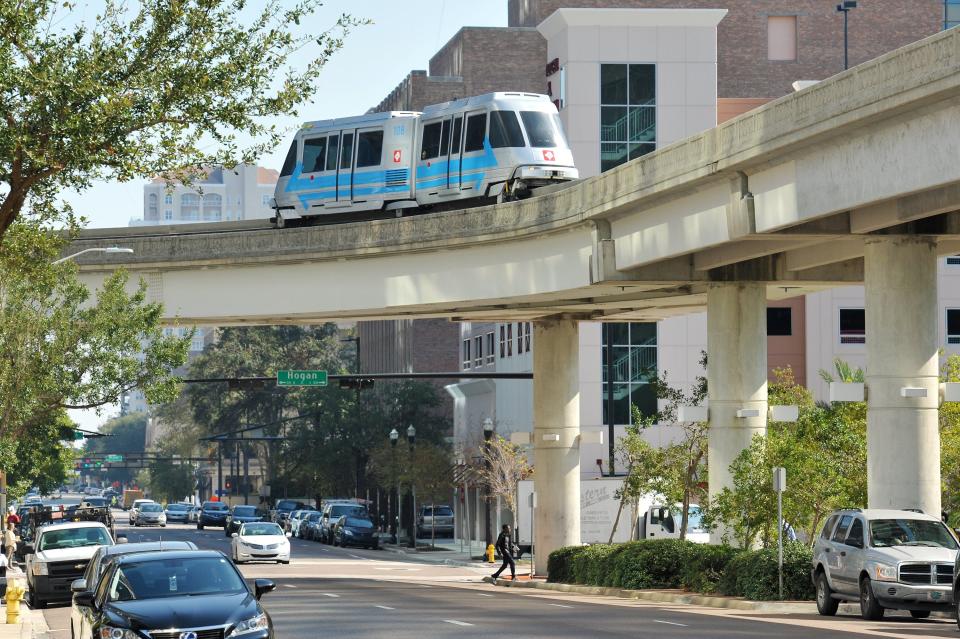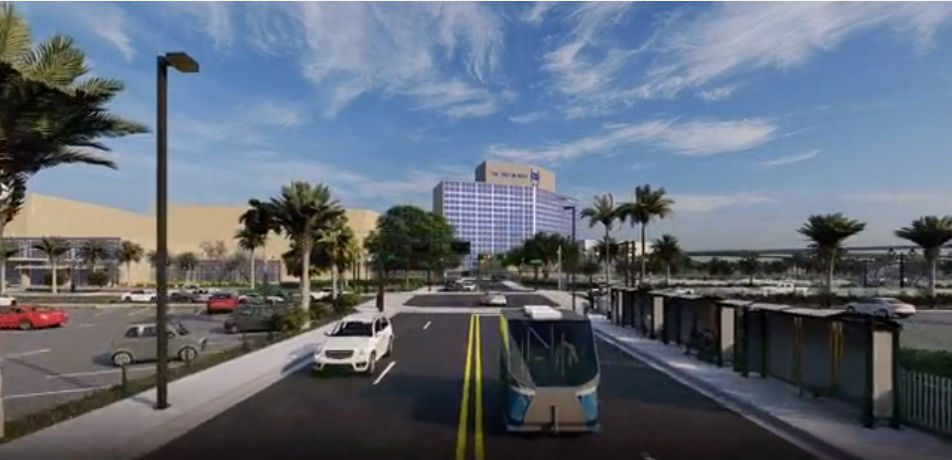A $6.5 million contract will begin design of converting Skyway structure in downtown

The Jacksonville Transportation Authority is taking a $6.5 million first step toward revamping the elevated Skyway in downtown so it will become the centerpiece of its planned Ultimate Urban Circulator system.
Drawing from local gas tax money, the JTA board approved a contract with HNTB to do the design that will flesh out an updated cost for converting the elevated Skyway so rubber-tired automated vehicles can use it and also travel on city streets.
The $6.5 million for HNTB will come from the $247 million set aside by the city and JTA for the Ultimate Urban Circulator system in a long list of transportation projects funded by raising the local gas tax in 2021.
Rising cost: Cost rises to $65 million for kick-off phase of "driverless" shuttles in Jacksonville
Moving ahead: JTA moves closer to start of work on system of self-driving transit shuttles in downtown
On the road: Where FDOT would spend billions in Jacksonville area
"We are really excited about this because right now we have rough estimates — very rough estimates — in terms of that conversion," JTA CEO Nat Ford said after the board unanimously approved the contract on Thursday.
The current plan is to cut away the top portion of the 2.5 mile-elevated structure and leave behind the concrete piers that hold it up. Then a new top part would be built on those piers in a way that rubber-tired automated vehicles can go along it.
"We did that kind of basic groundwork analysis, but this is going to be much deeper in terms of the design," Ford said.

While HNTB works over the next year to bring the design to the 30% mark, JTA will put the $66 million first phase of the Ultimate Urban Circulator, known as U2C, into construction mode at street-level along Bay Street to the sports complex. The Bay Street Innovation Corridor would be connected in the future to the elevated system by ramps so the automated vehicles can travel on both when taking passengers around downtown.
The Downtown Development Review Board in December approved the design for a building that will house the control room for U2C system that will use sensors and video cameras to guide vehicles without needing a driver. The Autonomous Innovation Center will be built on what's now a parking lot on a block bounded by Jefferson, Broad, Bay and Water streets.

The HNTB contract will examine adding charging stations for electric-powered buses along the U2C's route. The state awarded money to 13 counties in 2022 for purchasing electric buses including enough money for JTA to buy six of those buses.
"We know we're going to electric buses at some point, or alternative fuel buses," Ford said.
He said if it's feasible to put the charging stations in those locations, JTA could "get all of this done at the same time so what we convert to can serve multiple purposes and be future-proof in a lot of ways."
The city increased the local 6-cents per gallon gas tax to 12 cents in order to finance about $930 million of work over a 30-year period.
This article originally appeared on Florida Times-Union: JTA awards contract to HNTB for redesign of Skyway in Jacksonville

